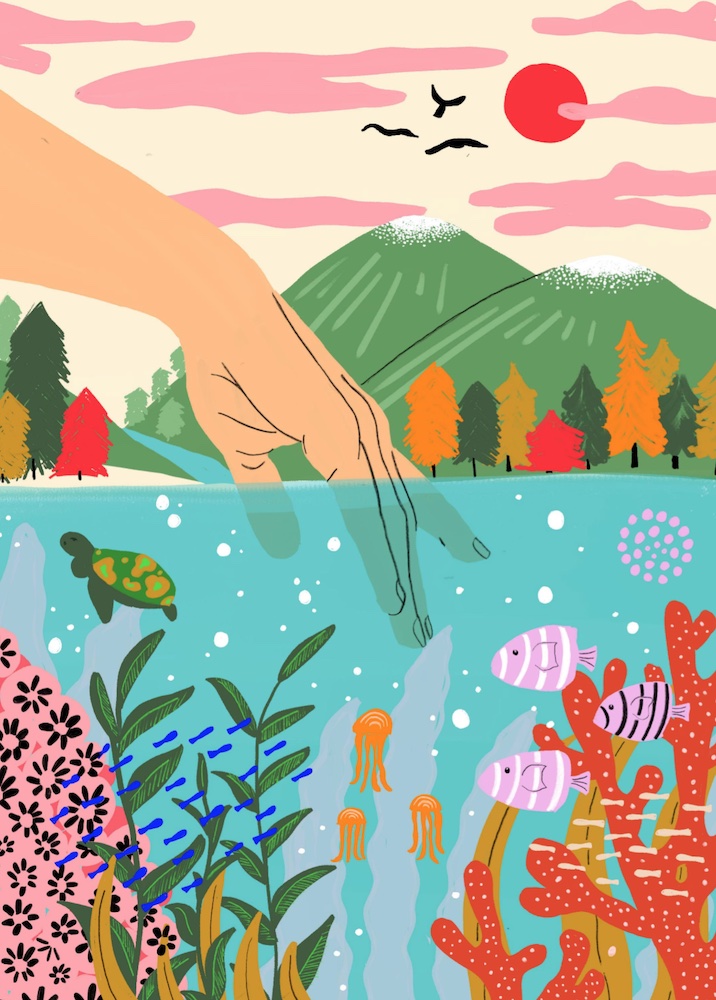Women Rise to the Challenge

As temperatures rise around the world, one thing is clear: Women are paying an outsized price. The United Nations estimates that 80% of those displaced by climate change are women. Women are likelier victims of natural disasters, and pregnant women and babies are especially vulnerable to climate change. Black, brown, and Indigenous women, as well as women in the Global South, bear an even heavier burden due to systemic inequities wrought by centuries of racism and colonialism.
But there’s another side to this story: The same forces that make women more vulnerable uniquely equip them to lead solutions. In the Global South, women collect two-thirds of water supplies and are responsible for up to 80% of food production. As they are on the front lines of water and food scarcity, disaster recovery, and biodiversity loss, women are well-positioned to identify root causes and dream up solutions. Through the process, research shows that they’re core agents for peacemaking and likelier to work to improve their entire community.
Women in higher-income countries are better advocates for the environment, too. One study found that, in Organization for Economic Co-operation and Development countries, women, who make over 80% of consumer purchasing decisions, are more likely to recycle, buy eco-friendly products, and focus on lifestyle changes to combat climate change. A 2021 survey of European Union citizens revealed that women are slightly more concerned about – and likely to have taken action against – climate change than men.
At the highest level, women leaders make more climate-forward decisions. A 2005 study indicated that countries with more female representation in their parliaments are more likely to ratify international environmental treaties. Research in 2019 suggests that the election of more women to parliaments can lead to countries adopting more rigorous climate policies and lowering carbon dioxide emissions.
If global disempowerment of women has been bad for the Earth, the era of climate change is also an opportunity to rethink the systems that got us here. From fossil fuel reliance, to wasteful or crumbling water infrastructure, to an unsustainable and inequitable global food supply, it’s clear that the status quo is failing. As we leave behind extractive systems of the past, we have an opportunity to do away with the gender inequities they perpetuate and build a more just future.
Despite the evidence in favor of investing in women, less than 2% of environmental funding goes to women-led projects. At the highest level of climate leadership, women decision-makers are still underrepresented: In 2023, only 15 of the 133 world leaders at the 28th United Nations Climate Change Conference (COP28) were women. In 2024, COP29 host Azerbaijan announced an all-male 28-member conference organizing committee. (After criticism, the government included 12 women.)
The challenges of climate change can feel overwhelming, and it’s tempting to feel hopeless. But women on the front lines of the planet’s most drastic changes – who are responsible for the well-being of the most vulnerable and often for entire communities – don’t have the choice of despair.
And women around the world are acting. They are rewilding forests, feeding their communities, and protecting wildlife. They are rebuilding after cyclones, constructing seawalls, and educating their communities on reproductive health and biodiversity. These women, and their allies, are leading the transition out of an era of extraction and exploitation, and dreaming up new systems of support, regeneration, and care.
These are some of the women – and the organizations supporting them – who are taking on the responsibility of hope with courage and ingenuity.